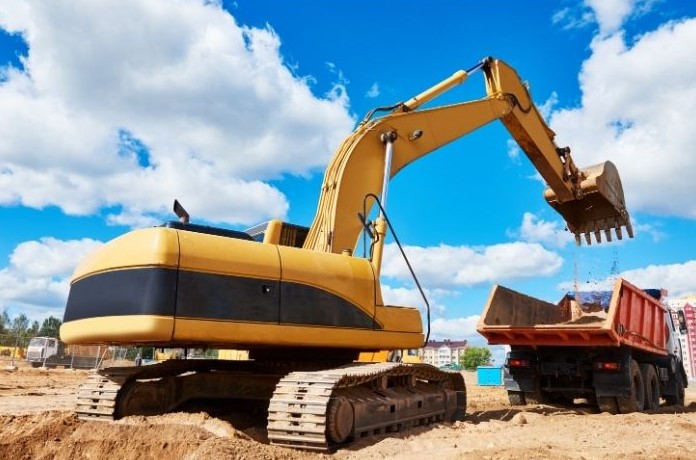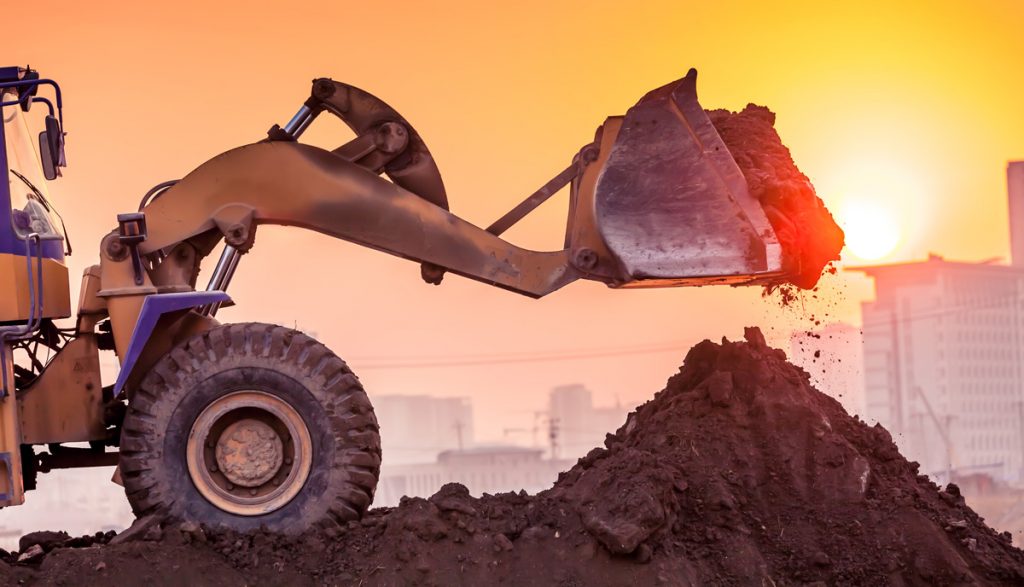Earth moving operations play a crucial role in the construction industry. These operations involve various activities such as site preparation, excavation, grading, and land clearing, which are essential for any construction project. However, as with any construction activity, earth-moving operations have several risks and liabilities that must be considered and managed to ensure a successful project outcome.
Construction companies and contractors must understand the risks and liabilities associated with earth-moving operations and take appropriate measures to mitigate them. Failure to do so can result in costly legal battles, financial losses, injuries, and even fatalities.
In this blog, we will explore the risks and liabilities involved in earth-moving operations and the measures contractors and construction companies can take to manage them. We will also examine the importance of safety measures and types of insurance coverage to ensure successful and safe earth-moving operations.
Site preparation
Site preparation is a critical aspect of any construction project, and as an earth-moving business owner, you are responsible for ensuring that the site is properly prepared for the building process. Failing to take the necessary precautions during site preparation can result in costly damages and liabilities, which is where insurance coverage becomes essential.
One of the primary reasons why site preparation is so important is that it helps to minimise the risks associated with construction work. For example, proper site preparation ensures that the construction site is level and stable, which can prevent accidents and injuries to workers and equipment.
Additionally, site preparation helps to prevent damage to adjacent properties and the environment, which can lead to legal liabilities and costly lawsuits. By ensuring that the site is properly cleared of debris and vegetation and that proper drainage measures are in place, you can reduce the risk of damage to nearby properties and ecosystems.
As a tradesman, it is essential to have insurance coverage that includes site preparation, as this will provide protection against any damages or liabilities that may arise during the site preparation process.

Methods of site preparation (clearing, grading, excavation):
- Clearing: Removal of trees, bushes, rocks, and debris from the construction site
- Grading: Levelling and smoothing out the site to ensure an even surface for construction
- Excavation: Digging trenches and foundations for the building
Risks and liabilities associated with site preparation:
- Soil erosion and sediment runoff
- Damage to adjacent properties
- Injury to workers and bystanders
- Damage to equipment
- Environmental impact
Safety measures for site preparation:
- Proper use of personal protective equipment (PPE) such as hard hats, gloves, and safety glasses
- Use of caution tape and warning signs to mark off construction areas
- Proper storage and handling of hazardous materials
- Regular inspection of equipment and machinery
- Proper training for workers on the safe handling of equipment and materials
Insurance coverage for site preparation
Insurance coverage for site preparation is an essential aspect of protecting your business from the risks and liabilities associated with earth-moving operations. As a business runner, you are responsible for ensuring that the site is properly prepared for the building process, and insurance coverage can help to mitigate the financial risks of any unforeseen damages or liabilities that may arise during this process.
There are several types of insurance coverage that can provide protection during site preparation, including:
- Comprehensive Insurance Coverage: This type of insurance coverage can provide protection for any damages or losses to the construction site, equipment, or workers during the site preparation process. It can cover losses due to accidents, theft, or damage caused by natural disasters.
- Liability Insurance: Liability insurance can protect your business against any damages or injuries caused to third parties during the site preparation process. This can include damages to adjacent properties or injuries to individuals who are not employed by your business.
- Builder’s Risk Insurance: Builder’s risk insurance can provide coverage for any damages or losses that occur during the construction process, including site preparation. This type of insurance coverage can help to protect your business against losses due to natural disasters, theft, or other unforeseen events.
- Equipment Insurance: Equipment insurance can provide coverage for any damages or losses to the equipment used during the site preparation process. This can include excavators, bulldozers, and other heavy machinery.
It is important to note that insurance coverage for site preparation may vary depending on the specific risks and liabilities associated with your business. It is essential to work with an insurance provider who understands the unique needs of your business and can provide tailored coverage to meet those needs.
“At Tradies365, we offer insurance coverage that is specifically designed to meet the needs of tradesmen, including coverage for site preparation and earth-moving operations. Our comprehensive insurance policies provide protection for your business, equipment, and workers, while our liability coverage can help to protect against any damages or injuries caused to third parties. Contact us today to learn more about our insurance coverage for site preparation and how we can help to protect your business.”
Heavy Equipment Insurance in Earth Moving Operations
Heavy equipment plays a crucial role in earthmoving operations, which involve the excavation, moving, and placement of large quantities of soil, rock, and other materials. Without these machines, construction projects, mining operations, and other earthmoving activities would be difficult, time-consuming, and expensive. Some of the common types of heavy equipment used in earthmoving operations include:
- Excavators
- Bulldozers
- Loaders
- Graders
- Dump trucks

While heavy equipment can be incredibly useful for construction, earthmoving, and mining operations, there are also risks and liabilities associated with its usage. These can include:
- Personal injury: Heavy equipment can be dangerous if not operated safely, and can result in serious injuries or even fatalities to operators, other workers, or members of the public.
- Property damage: Heavy equipment can cause damage to structures, vehicles, and other property if not used carefully and responsibly.
- Environmental damage: Some heavy equipment, such as excavators and bulldozers, can cause environmental damage if used in sensitive areas or if hazardous materials are disturbed.
- Theft or vandalism: Heavy equipment is expensive and can be a target for theft or vandalism, which can result in financial losses and delays to projects.
To mitigate these risks and liabilities, it’s important to have proper insurance coverage for heavy equipment usage. This can include:
- Liability insurance: This type of insurance covers damages or injuries that may be caused by the operation of heavy equipment. It can also cover legal fees if a lawsuit is filed against the operator or the company.
- Property insurance: Property insurance covers damage or loss of the equipment itself, as well as any tools or attachments that may be used with it. This can include coverage for theft or vandalism.
- Workers’ compensation insurance: This type of insurance provides benefits to workers who are injured on the job, including those who operate heavy equipment.
- Environmental liability insurance: This type of insurance provides coverage for damages or cleanup costs in the event of an environmental accident caused by the use of heavy equipment.
As a tradesman involved in earth-moving operations, it is crucial to have insurance coverage to protect your business against any unexpected damages or liabilities. There are several types of insurance coverage available, each with its own unique benefits and limitations.
Comprehensive Insurance: Comprehensive insurance coverage provides protection against a wide range of risks and liabilities, including damage to equipment, third-party liability, and workers’ compensation. This type of coverage is generally the most comprehensive and can provide peace of mind for tradesmen who want to ensure that they are protected against any unexpected events.
Builders’ Risk Insurance: Builders’ risk insurance is specifically designed to protect against damages to the construction site during the building process. This type of coverage can protect against a variety of risks, including theft, vandalism, and weather-related damage.
However, it is important to note that not all risks and liabilities are covered by insurance. For example, intentional damage or damage caused by negligence may not be covered by insurance. It is important to take the necessary safety measures and precautions to minimise the risk of accidents and damages.
In addition, there may be legal requirements for insurance coverage depending on the state or territory where the work is being carried out. Tradesmen should be aware of any legal requirements and ensure that they have the necessary insurance coverage to comply with these requirements.
At Tradies365, we understand the unique risks and liabilities involved in earth-moving operations. That’s why we offer insurance services that are specifically tailored to meet the needs of tradesmen. Our comprehensive insurance coverage can provide protection against a wide range of risks and liabilities, while our builder’s risk insurance can help to protect against damages to the construction site during the building process.
Contact us today to learn more about our insurance services and how we can help to protect your business.
Note: The material offered here is for informational purposes only. It does not constitute legally binding advice and should not be a substitute for a consultation with an insurance expert.
